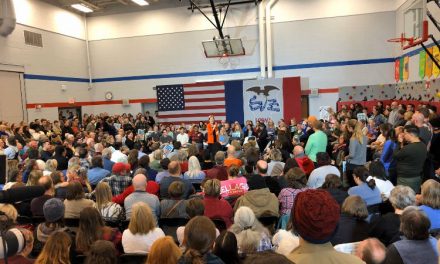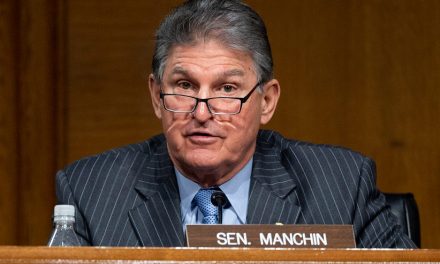Image Credits: Manuel Guzman.
Political blogging was born in the Bush years, peaked under Obama, and mostly died in the Trump Era. The decline is partly explained by the mainstream media adopting some of blogging’s strongest features and hiring some of its talent—think Ezra Klein and Greg Sargent. But the most important factor is that straight journalists finally internalized that it’s part of their job to tell the reader when they’re being lied to.
The mainstream media didn’t see it that way when the topic was invading Iraq to deal with Saddam Hussein’s alleged weapons of mass destruction. The political press corps was tentative in combating Birtherism and the Tea Party response to the election of a black man. At times, they were still somewhat credulous and deferential with the Obama administration. Yet, it was Trump’s flurry of incontrovertible falsehoods that led the Washington Post to put the famed “Democracy Dies in Darkness” banner up shortly after his inauguration. Today, after four years of covering his presidency, straight news reports are blog-like in the way they chop down lies and contradict official statements. This has made blogging less vital, and less unique.
A good example of this admirable adoption of blogging sensibilities can be found in Washington Post reporter Josh Dawsey’s coverage of Trump’s Thanksgiving appearance from a diminutive desk in the Diplomatic Room of the White House, where he took questions for the first time since he lost the November 3 election.
Trump said he planned to continue to make claims of fraud about the results and said, without evidence, that Biden could not have won close to 80 million votes. His legal team has been widely mocked — and has lost almost every claim in every state, as officials certify results for Biden.
I try to imagine what it would have been like in 2002-03 if the Washington Post had written, “Bush said he planned to invade Iraq and said, without evidence, that Saddam Hussein was developing nuclear weapons. His foreign policy team has been widely mocked – and the United Nations inspectors have contradicted almost every claim as they’ve scoured the country in vain looking for weapons of mass destruction.”
Dawsey also wrote that “Trump continued to falsely claim that there had been widespread voter fraud in his election, without offering proof. And he again falsely said Republican poll watchers were not allowed to observe in Pennsylvania…” In a similar vein, Michael Crowley, writing for the New York Times noted that Trump’s Thanksgiving remarks “reiterated baseless claims of fraud that he said would make it ‘very hard’ to concede” his defeat.
If unfounded claims from the White House had been treated that way in the lead-up to the Iraq war, I don’t think the progressive blogosphere would have taken off in the way that it did. The way Crowley concluded his piece gives the kind of satisfaction that only bloggers used to provide:
At times, Mr. Trump shifted his explanation of his defeat from claims of fraud to complaints that the political battlefield had been slanted against him, casting the news media and technology companies as his enemies.
“If the media were honest and big tech was fair, it wouldn’t even be a contest,” he said. “And I would have won by a tremendous amount.”
After seeming to concede reality, Mr. Trump quickly caught himself and revised his conditional statement.
“And I did win by a tremendous amount,” he added.
This has an appropriate mocking tone, making clear that that president is lying, making lame excuses, contradicting himself, and acting in a delusional manner. It’s a shame that it’s necessary to characterize the president’s remarks this way, but it’s essential. Trump sensed this himself. When Reuters White House Correspondent Jeff Mason asked if he’ll concede after the Electoral College votes, Trump barked: “You’re just a lightweight. Don’t talk to me that — don’t talk — I’m the president of the United States. Don’t ever talk to the president that way.”
Political blogging was born of media deference to the president. It died in large part because the media woke up during Trump Era and put an end to that error.







